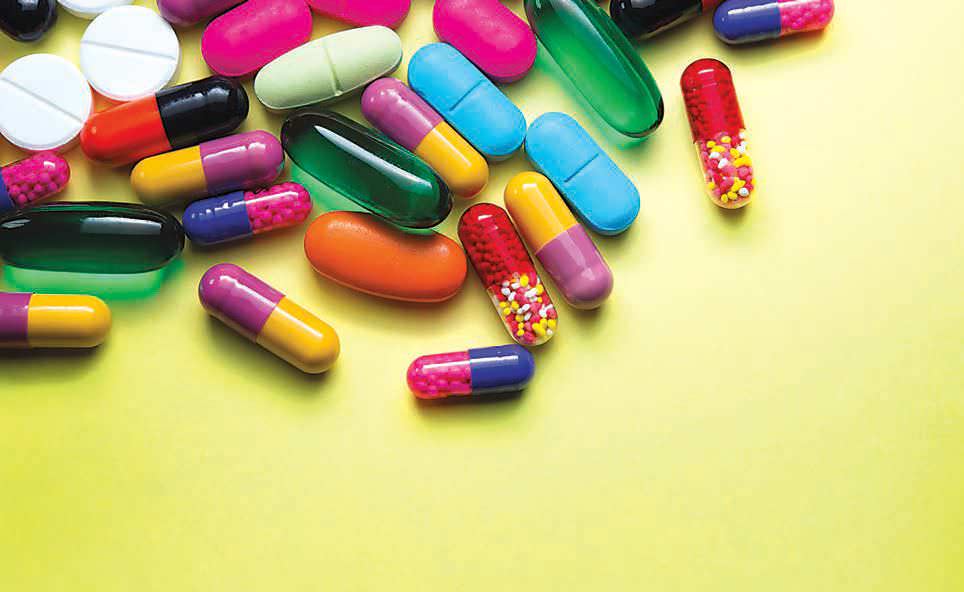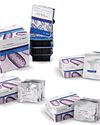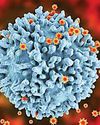The policy encourages indigenous production of APIs and Key Starting Materials (KSMs) in several ways. However, a more thorough approach is required to once again enable the domestic API industry to become competitive. The Indian government needs to focus on developing the local chemical industry which can then in turn support API manufacturing.

The generics business is facing challenges both in the domestic as well as the international market; on exports, Indian pharmaceutical companies are facing a sharp decline in returns as a result of increasing product price erosion, largely due to the consolidation of distribution channels and increase in competition in the U.S. This, coupled with reduced value of product patent expirations over the next five years, implies lower growth potential for the pharmaceutical sector.
On the domestic front, the environment for pharmaceutical companies remains challenging with more products coming under price control, increase in scrutiny by global regulators, high active pharmaceutical ingredient (API) import dependency and complex process for approval of new products.
In the midst of these growing concerns, the Department of Pharmaceuticals (DoP) introduced an action plan to strengthen the Indian pharmaceutical industry and has released the ‘Draft Pharmaceutical Policy – 2017’ to make essential drugs accessible at affordable prices, provide a stable policy environment, achieve self-sufficiency in drug manufacturing, ensure quality drugs and create a favourable environment for R&D. The top five highlights of the proposed policy are as follows:
Encourage domestic API manufacturing
It has been proposed that formulations prepared using indigenously produced API and its intermediates will be given preference in government procurement. Such formulations will be taken out of price control for five years with prices linked to the indigenous content of these formulations. The APIs which can be indigenously manufactured will be imported at peak customs duty. The policy also supports setting up of mega bulk drug parks having common facilities.
Esta historia es de la edición October 2017 de Bio Spectrum.
Comience su prueba gratuita de Magzter GOLD de 7 días para acceder a miles de historias premium seleccionadas y a más de 9,000 revistas y periódicos.
Ya eres suscriptor ? Conectar
Esta historia es de la edición October 2017 de Bio Spectrum.
Comience su prueba gratuita de Magzter GOLD de 7 días para acceder a miles de historias premium seleccionadas y a más de 9,000 revistas y periódicos.
Ya eres suscriptor? Conectar

Sartorius Stedim Biotech opens new centre for bioprocess innovation in US
Sartorius Stedim Biotech, a leading partner of the biopharmaceutical industry, has opened its new centre for Bioprocess Innovation in Marlborough, Massachusetts in the US.

Agilent introduces innovative Mito-rOCR assay kit for mitochondrial research
Agilent Technologies Inc. has announced the new MitorOCR Assay Kit.

Qiagen launches AI-extension of Ingenuity Pathway Analysis for automatic interpretation of biological data
Qiagen has announced the launch of Ingenuity Pathway Analysis (IPA) Interpret, a new feature designed to simplify and accelerate the interpretation of complex biological data.

Parse Biosciences announces expansion of Evercode BCR product line
Parse Biosciences, a leader in scalable single cell sequencing solutions, has announced the expansion of its Evercode BCR product line to enable applications in mice.

New technology for unambiguous detection of HIV genome using tailored fluorogenic tests
A team of scientists at Jawaharlal Nehru Centre for Advanced Scientific Research (JNCASR), has developed a novel diagnostic technology known as the GQ Topology-Targeted Reliable Conformational Polymorphism (GQ-RCP) platform.

Gene mutation likely cause for developing autism in early childhood: RGCB study
Autism, a developmental disorder that causes functional abnormalities in brain development, is caused by a combination of environmental and genetic factors with its symptoms manifesting in childhood as early as the age of two years.

IIIT-Delhi unveils AI platform for discovering molecules that promote healthy ageing
A team of researchers from Indraprastha Institute of Information Technology Delhi (IIIT-Delhi) has developed AgeXtend, a groundbreaking artificial intelligence (AI)-based platform that is set to transform the search for molecules promoting healthy ageing.

RSSDI study lays focus on Yoga and Diabetes Prevention
Dr Jitendra Singh, Union Minister of State (Independent Charge) for Science and Technology, recently released the landmark study by Research Society for Study of Diabetes in India (RSSDI) on 'Yoga and Diabetes Prevention'.

Dr Alok Khullar steps in as Group CEO of RJ Corp Healthcare
RJ Corp Healthcare, a leading name in the healthcare sector through its renowned entities Cocoon Hospital and Cryoviva Stem Cell Bank, has announced the appointment of Dr Alok Khullar as Group Chief Executive Officer (CEO).

Entod Pharmaceuticals on-boards Dr Anish Desai as Scientific & Research adviser
Mumbai-based Entod Pharmaceuticals has appointed Dr Anish Desai as its Scientific and Research Adviser.